Science vs religion. Supposedly a battle that science is winning, or has won already.
Science is all about evidence and facts, they say, while religion is all about blind faith more than evidence.
So I was interested to read three books about scientists (and others) coming to believe in God, to see how they dealt with some of the issues.
3 books, 4 scientists & 8 others
Two of these books were published in 2023, one in 2019.
Chasing Proof, Finding Faith (2023)
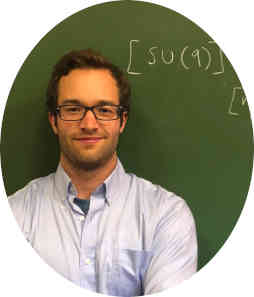
Tom Rudelius researches early string theory, universe cosmology and quantum field theory at the University of California. He grew up in a non-Christian home, where is main interests were academic study and sport …. and competing with his twin brother Steven in both.
They both ended up in different universities, each unaware of the struggles the other was going through. So Tom was surprised to hear that his brother, after more than 6 months consideration, had become a Christian.
The brothers discussed it all, and so Tom began a journey of thinking through issues that made him disbelieve. Are miracles possible or do scientific laws prevent them? Is Christianity “better” than other religions? Could he trust the authors of the New Testament?
His brother also gave him the Richard Dawkins book, The God Delusion, so he could check out the other side. Tom found it unconvincing. Dawkins’ main anti-God argument seemed to be Who designed the designer?. If we can’t explain how God exists then God can’t be an explanation for the universe’s existence. An explanation based on a mystery is no explanation. Yet Tom knew from his science study that if this was true, it would rule out much of science and much of what we know. (For example, we may not know how the big bang began, but cosmologists have certainly learnt a lot about it.)
The next step in his journey was really strange. While studying at university, Tom applied for an internship with a government security organisation, which required him to undergo a polygraph (lie detector) test. Polygraph tests often give false positive results (i.e. register a lie inaccurately), and that happened to him when asked a simple question about his honesty. He submitted to the test over and over, each time admitting some minor untruth in his life, but still failing.
He went back four more times but was never able to satisfy the security check. Paradoxically, he came out of the failed tests knowing he now believed in Jesus and recognising he wasn’t the confident, well-adjusted person he had thought he was.
Facing difficult questions
As a young Christian, Tom faced all the usual difficult questions. He resolved some in interesting ways.
- Rather than argue about the truth of every single fact in the Bible, Tom thought it better not to hold to Biblical inerrancy. It was the resurrection that is important, he decided, and the historical evidence for that is good if we don’t rule out the existence of God.
- He faced the idea that religion and science were opposed, saw that some of his fellow researchers were theists and others were not, and felt quite comfortable with his beliefs.
- He had no difficulty as a Christian with believing in evolution. But he struggled with many other parts of the Old Testament: the harsh commands, the doubts raised by archaeology, etc.
- He experienced periods of anxiety and doubt, especially over the problem of why God allows so much evil and suffering in the world, and why God doesn’t make himself more obvious. “Do I really believe this stuff?” he wondered repeatedly. Was his belief just wish fulfilment?
- His understanding of Jesus was deepened when he realised that the simple evangelical “gospel” is incomplete – Jesus came not just to die for sinners but to establish God’s kingdom or rule on earth. Jesus is the king who cares for justice and for people. Our response is to give our allegiance and commitment to him and his mission.
This book tells Tom’s story, his weaknesses and doubts, in an honest open way. It is well worth reading. I would have liked him to tell us a little more about his scientific research and how that intersects with his faith, but maybe other readers wouldn’t want that.
Coming to Faith Through Dawkins (2023)
This excellent book tells the story of a dozen people, from all walks of life, who converted to Christianity despite, or in many cases because of, contact with the atheism of Richard Dawkins.
Let me say right at the start of the review, while I appreciated the book I didn’t like the combative tone of the cover and Alister McGrath’s introduction, which seems to enjoy putting Dawkins down. I’d prefer to be a little more gentle and less personal, and to treat Dawkins with more respect.
The twelve chapters differ in style and content, which is good. Some are very autobiographical, others focus more on philosophical and scientific issues. The authors include scientists, historians, communicators, arts graduates and an engineer. Some of my favourite chapters:
Biochemist Sy Garte‘s chapter directly and systematically addresses many of Richard Dawkins’ views on religious faith from a scientific bachground not all that different from Dawkins’. To me it was the standout chapter, leading me to purchase Sy’s book (see below).
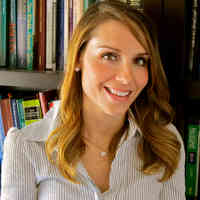 Australian historian Sarah Irving-Stonebreaker went to Cambridge and Oxford Universities as an atheist, but found that the atheism of Peter Singer and Richard Dawkins couldn’t explain the ethical values she was convinced were true. Christianity provided both a basis for ethics and meaning in life, and so she turned to faith. I have written up Sarah’s story in “The implications of my atheism were incompatible with almost every value I held dear”.
Australian historian Sarah Irving-Stonebreaker went to Cambridge and Oxford Universities as an atheist, but found that the atheism of Peter Singer and Richard Dawkins couldn’t explain the ethical values she was convinced were true. Christianity provided both a basis for ethics and meaning in life, and so she turned to faith. I have written up Sarah’s story in “The implications of my atheism were incompatible with almost every value I held dear”.
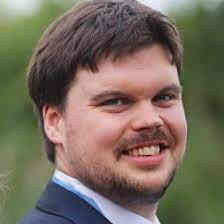
Peter Byrom was raised in a Christian home in UK, but this faith faded as he completed school. While studying art and theatre, he saw two friends and flatmates change the direction of their lives around the same time – one converting to Christianity from a non-religious background while a Christian converted to atheism after reading Richard Dawkins’ The God Delusion. He knew only one could be right.
In this chapter Peter tells how Dawkins’ argument initally made a big impression on him, but later he discovered Christian philosopher William Lane Craig and his rigorous logic. He watched debates in person and on YouTube, and eventually decided the Christian answers were more philosophically true. But he credits Dawkins with awakening his interest in the God question.
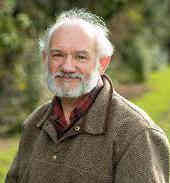
Andrew Gosler‘s chapter fascinated me. He is an ethno-ornithologist (no, I didn’t know there was such a discipline either!) and started with a long description of the habits of the Greater Honeyguide, an African bird that cooperates with people in finding nests of wild bees. But modernisation threatens this unique relationship.
Consideration of the evolution of these birds, and of evolution generally, led Andrew to challenge some of the ideas of neo-Darwinism, especially the role of conflict in evolution. He also felt challenged in his mildly Jewish agnosticism by the “new atheists” such as Richard Dawkins. He concluded that science and faith are not incompatible, and eventually found that God speaks to him through nature, especially through birds, leading him to convert to Christian faith.
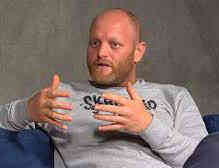
I found Afrikaner Johan Erasmus‘s chapter both amusing and rigorous. Growing up in a Reformed Christian environment, he was told CS Lewis’ Narnia stories were satanic – “An odd strategy by the Prince of Darkness” he thought. He became a sceptic among Christians.
He read Sam Harris, Christopher Hitchens and Richard Dawkins until a friend studying theology advised him: “You seriously need to get yourself some better atheists”, and suggested a few names (Michael Ruse, Thomas Nagel & Nietzsche) – then suggested a few Christian thinkers as well (Thomas Aquinas, Alvin Plantinga & Alister McGrath). He thought the Christians slightly won the debate, but not enough for him to commit. But his need to find meaning and his commitment to racial reconciliation led him to conclude that Christianity provided a better basis for ethics. But, he says, he still doubts from time to time.
The Work of His Hands (2019)
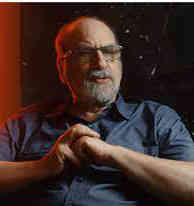
I really loved this book. Rather than a conventional autobiography (such as Tom Rudelius’ book), Sy Garte has chosen to base his book around the significant questions he faced as he studied and worked as a biochemist. This means we learn less about his life, and more about the deep issues of science and faith which he examined – which I really appreciated.
Most of these questions arose in the course of his scientific study and career, and eventually led him to Christian faith – truly, scientific evidence was the cause and basis of his faith. Chapters are devoted to each of these topics.
Is the world a purely rational place?
Quantum physics shows that the world isn’t totally predictable, but is at core random and uncertain. Chaos theory shows that mathematics struggles to describe some aspects of our world. This realisation led Sy to give up his belief in pure materialism in favour of uncertainty.
Thinking about chaos theory and fractals led him to wonder why things weren’t as simple as he once expected. Cosmic fine-tuning suggested there might be some mysterious design behind the universe. His mind became more open. He realised that scientific answers always seemed to lead to more unresolved questions.
The complexity of biological life
Sy’s university studies led him into evolutionary biology, biochemistry and molecular biology. He discovered that chemistry in the non-living world is slow and random, but in the cells of living things it is fast and purposeful. And amazing. Each living cell contains that creature’s DNA with its genes. The processes of cell replication are complex and wonderful.
This purposeful complexity arises from evolution – a successful theory that explains how natural selection leads to changes in inherited characteristics. Biologists often claim that evolution is not purposeful, but he came to think that biology has purpose, and he felt a sense of awe. He was not even thinking of God, just absorbed in the science.
Are people special?
Contrary to some prevailing views, he came to think of human life as being special, exceptional even. The triumphs of human ingenuity and technology are apparent to all of us. But why do we paint or create music or write? Where do philosophy, love and humour come from?
He felt that evolutionary science didn’t explain the wonder of life, especially human life. He couldn’t help wondering how evolution made people special.
Where do things come from?
He says there are three main origins we try to explain: the universe, life and human consciousness.
- Science struggles to explain the big bang, cosmic fine-tuning, leading him to wonder (perhaps for the first time) whether the idea of God might be sensible.
- The origin of life, the jump from chemistry to biology, is even more difficult, with multiple hypotheses but none (so far) being more than an idea.
- Consciousness as we all experience it remains a mystery that is difficult to explain via materialism alone.
In this and other chapters, Sy delves into the science as an expert, and his discussion broadened my scientific knowledge as well as my philosophical understanding.
Faith and the limits of science
Finally, after years of scientific research and pondering these questions, Sy concluded that there were indeed significant limits to what science can tell us. Our models are only approximate and some questions cannot even be modelled. There are some questions which require other approaches. In his search for deeper understanding, he was at an impasse.
But he had moved from atheist to agnostic. For some reason, in his forties, he went to a church service. He found nothing that was opposed to his science or judgmental, and much to admire in the teaching on love and forgiveness. He was shocked.
After a few interesting dreams, he began to open to the idea of God, though still doubting. Eventually, he crossed a theshold and became a Christian, a viewpoint he had previously held in contempt.
Problems and issues
The second half of the book addresses some of the issues he has faced since believing, including:
- Does religion cause more evil than good? (Other causes are much greater.)
- Is religious belief compatible with being a scientist. (The difficulties are much exaggerated.)
- Can we trust the Bible to be fully true? (No-one does that, everyone interprets. Understood rightly, we can.)
- Why is there evil in the world? (He discusses love, freedom and chance, in a scientific way that I found enlightening.)
- How Christians might best view evolution. (It is best understood as a prcoess God set up to occur.)
He concludes with a discussion of how science and faith work together to provide knowledge, give wisdom and answer questions.
This book is a tour de force. There is so much fascinating scientific information, all woven into a discussion of how science points to God and how research and questioning led him on a path to belief.
The bottom line
If you are interested in stories of people’s life journeys towards God, and how they work through different issues, I think you’ll find these books interesting. If you are inteested in science and how science and Christian faith interact, then I think you’ll learn something useful here, especially from The Works of His Hands – I certainly did.
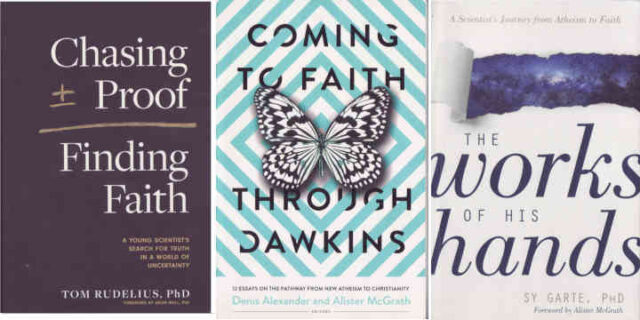


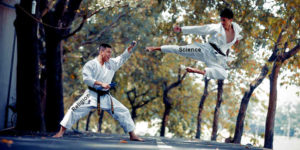
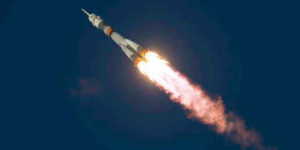

Science struggles to explain the big bang,
If god did it what explains god?
cosmic fine-tuning,
What explains the fine tuning of god to be just right to have his creative powers?
The origin of life, the jump from chemistry to biology,
Biology is chemistry, so there is no jump at all
Consciousness as we all experience it remains a mystery that is difficult to explain via materialism alone.
God does nothing to explain consciousness, nor does idealism, or immaterialism. How does something that is really not a thing explain anything? How does this indescribable immaterial manifest consciousness?
Hi, these are good questions, and I’d be keen to discuss them with you. Here’s my thoughts ….
I have read many scientists say that every new discovery opens up new questions. But those new questions don’t invalidate or lessen the discovery. It is the same here. We want an explanation for the big bang. If God caused it, then we have learned something. The fact that we can’t explain God doesn’t diminish the value of the conclusion that God did it. The only way to diminish that conclusion is to offer a better hypothesis. What would you suggest?
God isn’t an object to be analysed by scientific observation, whereas the universe is. Fine-tuning is a scientific process. So I think the question is meaningless,
Abiogenesis is indeed seen as a jump by scientists. But so far science hasn’t a consensus hypothesis on how it happened. See e.g. Live Science. What mechanism do you propose?
I think the argument is a little different. If materialism is true, then consciousness is an anomaly. If some other view (dualism, panpsychism, idealism, etc) is true then consciousness isn’t anomalous, even if it is hard to fully explain. The starting point to an explanation is that material things (atoms, etc) are not the only things in the univrse, but there are immaterial things, perhaps minds. Materialism thus doesn’t even get to first base in explaining consciousness.
That’s how I see things. What about you?
Hi Eric.
Hope you’re well and your loved one prosperous.
I found your description of “The Work of his hands” to have peaked my interest.
I don’t suppose you know of any reviews that might be of interest to this uncertain agnostic do you?
Hope you are doing well and that 2024 is shaping up to be a good year!
Aaron from the UK
Hi Aaron, nice to hear from you. Yes, thanks, everything is pretty good for me and us and 2024 is going well, though busy? How about you?
This review of the book is by a fellow scientist in a similar field, a friend of Sy Garte, and an agnostic, so you might find it interesting. This article about the resurrection by Sy may also interest you.
Most other reviews I found seemed to contain the samewords, I think from the publisher’s blurb, so the one I linked to here seems the most independent and interesting.